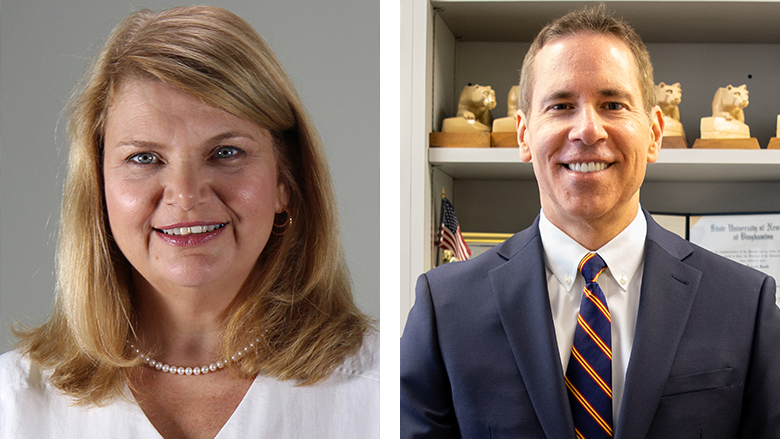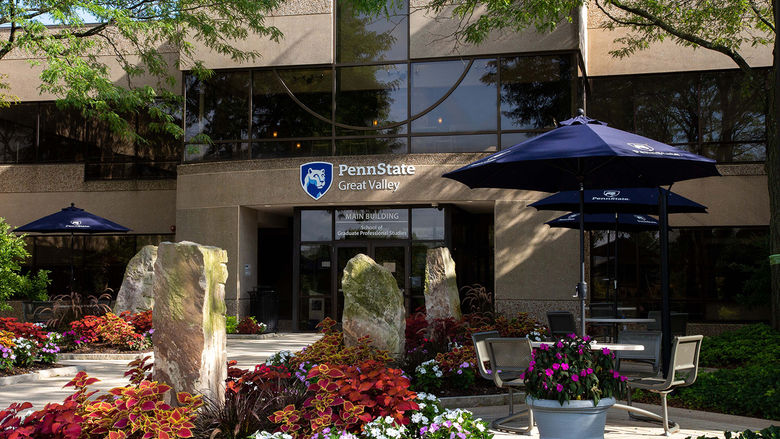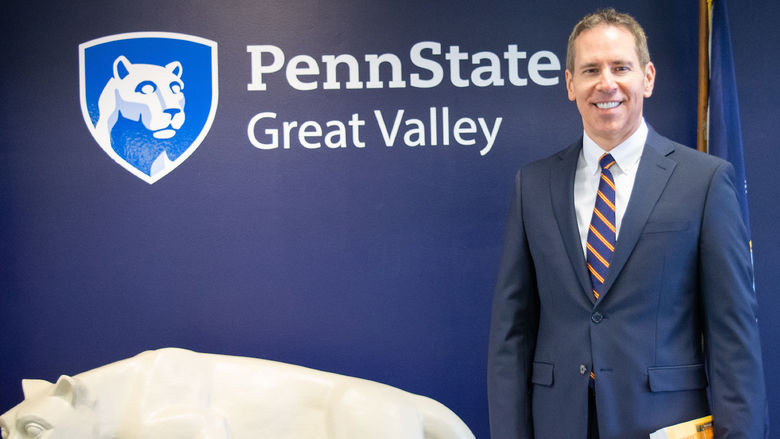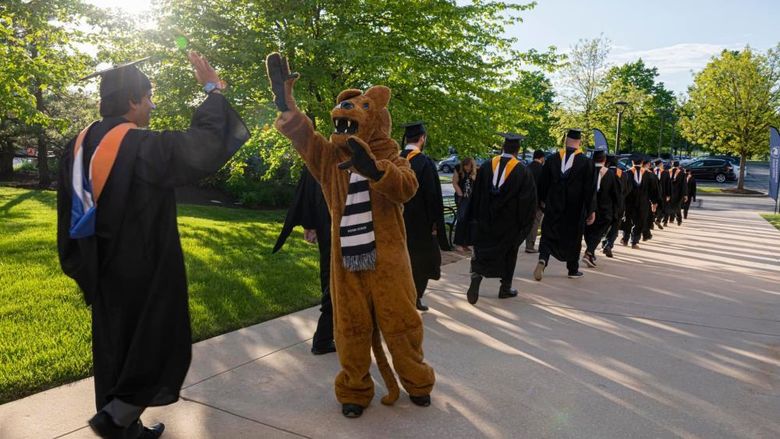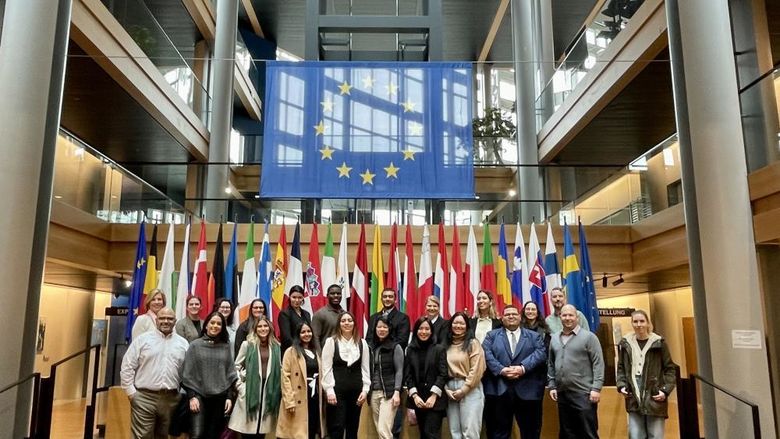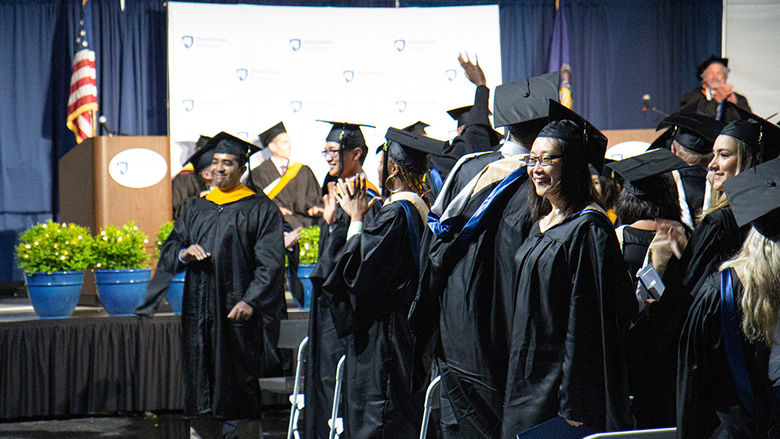MALVERN, Pa. — As countless small businesses have been impacted by the COVID-19 crisis, a class of Penn State Great Valley students spent the spring II term helping four local entrepreneurs expand their company or organization.
Social Entrepreneurship and Community Leadership, the capstone course for Penn State Great Valley’s Master of Leadership Development degree, has students split into teams to work with a small business to develop marketing plans, social media guides, infomercials and more. The service-learning course, taught by Cyndy Walton, assistant teaching professor of management, uses entrepreneurial skills to craft innovative responses to social needs, applying business leadership and entrepreneurship principles to organizations whose products and services create social value.
The course shifting to remote learning presented challenges; some businesses weren’t comfortable or faced a steep learning curve with completely online communication. Each of the four businesses with whom the students worked — the African Education Program, Chester County Wildlife Foundation, Heavenly Sweet Chocolates, and Jessie’s House — relied on in-person interactions to at least some extent, forcing the businesses and student teams to rapidly adapt and rethink how to generate revenue.
“Our students are bright people, so they’re able to adapt quickly,” Walton said. “They’ve been doing a lot of hard work and I am very proud of them. Also, I think that working with local social entrepreneurs is uplifting, and at this time, we could use all the uplifting we can get. Take a look at these four organizations, they’re pretty amazing.”
The African Education Program (AEP) was founded in 2002 by four Radnor High School students who sent textbooks, computers and clothes to Zambia. A few years later, the group founded the Amos Youth Centre, a youth community center in Kafue, Zambia. AEP provides tuition for high school students, educational support, nutrition, creative clubs, health information, field trips, and leadership development.
With the onset of the COVID-19 crisis, AEP shifted to focus on securing emergency relief funds to support local families. The Penn State Great Valley team worked on securing grants for the organization and integrating online grant seeking and tracking methods into AEP’s routine. The team also developed pamphlets and commercials for AEP and virtually connected with Philadelphia-area businesses and Penn State alumni to share the organization’s mission.
“Our team was challenged during this time,” said group member Samantha Moyer. “We were learning new skills from a distance and finding new ways to learn and work together while not being able to meet in-person. Thanks to video technology, we were able to accomplish these goals without skipping a beat and are eager to see how the African Education Program benefits once out of lockdown.”
Click here to watch the team's infomercial on AEP.
Chester County Wildlife Foundation (CCWF) takes in animals that were injured and unable to return to the wild after being treated. Before the COVID-19 crisis, CCWF provided in-person programs for adults and children, with the goal of educating participants about various animals and how to help prevent injuries to wildlife.
Students working with CCWF developed a marketing plan and social media strategy. In-person events had been the animal sanctuary’s primary source of revenue, so the Penn State Great Valley team helped CCWF shift its focus to organizing weekly Facebook Live video sessions to educate the community and request donations. The team also performed several analyses of the business and created event evaluation forms to help CCWF identify areas of improvement.
“We were able to pull from our personal experiences of how our businesses have accommodated the [social distancing] change,” said group member Becky McCafferty. “We approached it as breaking it out into sections. We were able to collaborate online over Google to share our ideas, make sure we got buy-in from the group that we were all on the same path. … Because we were doing it more as consulting and less about the in-classroom content deliverables, I think it worked really well.”
Click here to watch the team's infomercial on CCWF.
Heavenly Sweet Chocolates was founded by Nancy Orlando, who earned her Master of Leadership Development degree from Penn State Great Valley. Using what she learned from her grandmother, Orlando makes specialty chocolates for a variety of events in the Philadelphia area.
The students working with Heavenly Sweet Chocolates — who dubbed themselves “Team Chocolate” — focused on bolstering the company’s online presence, creating social media marketing plans to expand its reach on Facebook and Instagram.
Team Chocolate also helped Heavenly Sweet Chocolates adapt to challenges faced by the COVID-19 crisis by creating online ordering forms; prior to the pandemic, Heavenly Sweet Chocolates relied primarily on in-person orders and events for its revenue.
“Thankfully technology today makes things doable, but it would have been much easier if we were able to meet in-person to really hash out our ideas,” said group member Jean Blosinki. “While we were able to adopt to the remote learning, I think most of us missed the in-person meetings and the value it brings to a group to be able to talk in-person.”
Click here to watch the team's infomercial on Heavenly Sweet Chocolates.
Jessie’s House, founded by a former special education teacher, provides care and a variety of programming for adults with disabilities. Activities — including classes, volunteering, and creating and running community events — helps the clients maintain daily structure while learning and helping others.
Because social distancing measures required Jessie’s House to pivot dramatically, the Penn State Great Valley team was primarily focused on creating a marketing plan for the organization. Instead of providing in-person care for clients, Jessie’s House shifted to virtual sessions to keep clients connected and supported.
Click here to watch the team's infomercial on Jessie's House.
Although remote learning and virtual communications posed challenges, their adaptability and commitment allowed the students to stay focused on working with the companies to help promote growth during and after the COVID-19 crisis.
“The students made tremendous progress,” Walton said. “They really jumped on board more than I’ve ever seen.”
